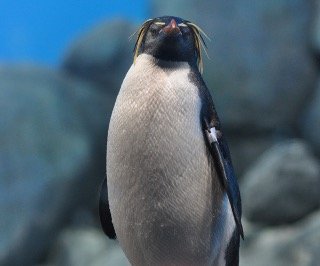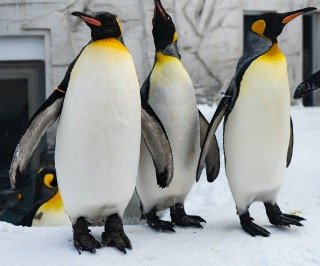Introduction
Emus are generally found in Australia and are very large. They stand at a height of 6 feet and are always misunderstood by ostriches because of these incredible creatures that look similar. Emus are amazing predators who have very sharp claws by which they can attack their prey easily. So, what do Emu eat?
These wild birds eat grass, seeds and various species of insects. They can hunt on their own but if possible they can also steal other bird food. These omnivore birds are divided into three species – northern emus, southwestern and s, and southeastern emus. They all are the habitat of Australia. These birds have no capability of flying but can run a long distance with a speed of around 50km/hr.
What do emus eat?

These flightless birds prefer to eat both plants as well as animals. Emus generally eat insects with high proteins. Cockroaches, ants, grasshoppers, beetles, flies, caterpillars, and many insects like them are the high preference of emus. They also feed on spiders, centipedes, and other anthropoids. They also eat seed grains, plants, and various grasses.
These are some of the food which Emus eat:
- Spiders
- Centipedes
- Corns
- Ants
- Flies
- Grasshoppers
- Caterpillars
- Grass seeds
- Casuarina
- Acacia
- Tree seeds
- Sunflower seeds
- Beetles
- Various fruits
- Small rodents
- Lizards
They highly prefer to eat those meals which are easily found by them. These incredible birds have the power to sense the danger they can have in eating specific animals or birds. So they don’t eat those creatures which can harm them. So even if they can kill some creatures, they avoid eating them as they can cause an emu a danger.
What do emus eat in winter?
Australia has a large variety of climatic changes and the temperature and weather keep changing throughout the year. These birds migrate during winter times to search for food. During winter, these migratory birds navigate places in search of safer and warmer spots and they mainly eat more plant-based food as it is very difficult to find insects in winter. So they eat more grass, herbs, seeds, and flowers. They do not only depend on animals or insects for their food.
What does baby emus eat?

The wild baby emus feed on the food which is available and accessible to their places. So they generally eat seeds, fruits, insects, reptiles, and other creatures that are easily haunted by their parents. And those in captivity, baby emus get those food which are filled with proteins and nutrients and which helps these baby emus to grow and develop.
What fruits and herbs do Emus eat?
Emus live in the wild areas and so they mainly consume the fruits that are easily accessible in the areas where they inhabit. So fruits like cherries, berries, apples, melons, grapes, kiwis, and all those types of fruits grow in the wild. They generally forage them from the ground as these are easy tasks for them.
Does emu eat meat and flesh?

Emus are omnivorous birds that feed on both plant-based meals and meat. These birds can easily catch their prey like insects, lizards, snakes and other replies and feed on them. They eat meat but that doesn’t mean that they can eat any. They prefer to eat the meat of those creatures that are non-poisonous. But they are most likely to feed on insects and arthropods.
Also, know about the Lifespan of Goldfish
How do these emus forage?
The emus travel so much in search of food. Either they find the food or they steal from the other bird’s food. These birds spend too much time foraging, picking at the ground to find the insects or worms to feed on them. They have sharp claws which they use to dig the ground. These birds don’t have teeth and therefore they swallow small rocks which get crushed and digested with their amazing organ. They have a gizzard, which is mostly present in the digestive tract of all birds and which helps to squeeze and crush those foods which are very hard to break.
Some more FAQs on the emu’s diet

Do these emu birds eat snakes?
These birds are experts at sensing danger about the creatures they need to avoid for feeding. So these birds don’t eat snakes which are poisonous and can harm Emus but they do feed on smaller snakes.
Does Emu eat other birds?
No, these flightless birds are incapable of catching the flying birds so they don’t feed on them. They also do not eat the eggs of any birds or reptiles. But this incredible emu can be fed on chicken eggs sometimes.
Does this Emu eat chicken?
Yes, emu does feed on chicken. As they are the birds who eat meat so when they are kept in captivity, they eat more meat scraps and chickens are also included in their meals.
Does Emu eat grass?
Emu can eat plant-based food so they do eat grass and shrubs. As these birds are aware of their protein taking food, they prefer to eat more green leafy grasses and juices from a variety of plants. They also eat plant roots by digging up the ground.
What are Emus predators?
As emus are very large and almost look like ostriches, they can hint at various creatures and feed on them, but these birds are also in danger from some predators who can kill the emus and then feed on them.
So here are some of the emu predators who are dangerous for emus.
- Pigs
- Dingoes
- Foxes
- Big snakes
- Domestic and wild dogs
- Monitor lizards
- Larger eagles
Conclusion
So, here is some of the information related to emus and their diet. These birds are not so much preferably on animals and birds like ostriches or vultures. These creatures are not that aggressive towards human beings but if these birds feel any danger from the human being, they can easily attack them. Especially if someone tries to get close to their meetings. These flightless birds who seem very dangerous are not too dangerous; they are peaceful creatures who feed only on plants and insects, hardly killing any other animals for their food.






Thank for sharing useful information. I like Emu birds, Emus are the biggest birds in the Land Down Under. Hope you write more.